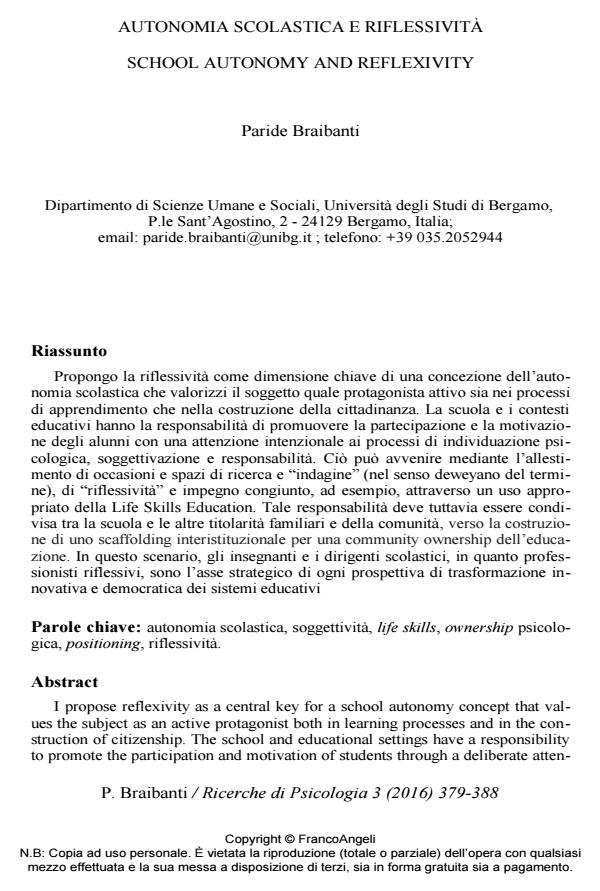School autonomy and reflexivity
Journal title RICERCHE DI PSICOLOGIA
Author/s Paride Braibanti
Publishing Year 2016 Issue 2016/3
Language Italian Pages 10 P. 379-388 File size 196 KB
DOI 10.3280/RIP2016-003007
DOI is like a bar code for intellectual property: to have more infomation
click here
Below, you can see the article first page
If you want to buy this article in PDF format, you can do it, following the instructions to buy download credits

FrancoAngeli is member of Publishers International Linking Association, Inc (PILA), a not-for-profit association which run the CrossRef service enabling links to and from online scholarly content.
I propose reflexivity as a central key for a school autonomy concept that values the subject as an active protagonist both in learning processes and in the construction of citizenship. The school and educational settings have a responsibility to promote the participation and motivation of students through a deliberate atten tion to the processes of psychological individuation, subjectification and responsibility. This can be done through the setting up of opportunities and spaces of research and "inquiry" (in the sense of Dewey term), "reflexivity" and joint commitment, for example, through an appropriate use of the Life Skills Education. However, schools must share this responsibility with family and other social agencies, toward the construction of an inter-institutional scaffolding for a community ownership in education. In this scenario, teachers and school leaders, as reflective practitioners, are the strategic axis of every prospect of innovative and democratic transformation of education systems.
Keywords: School autonomy, subjectivity, life skills, psychological ownership, positioning, reflexivity
Paride Braibanti, Autonomia scolastica e riflessivita in "RICERCHE DI PSICOLOGIA " 3/2016, pp 379-388, DOI: 10.3280/RIP2016-003007